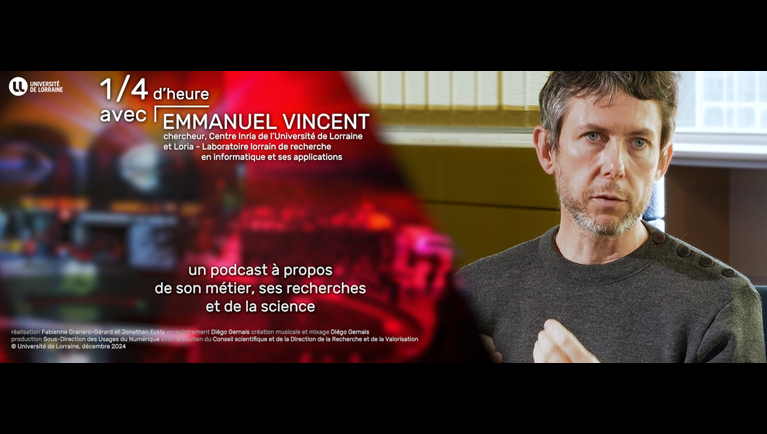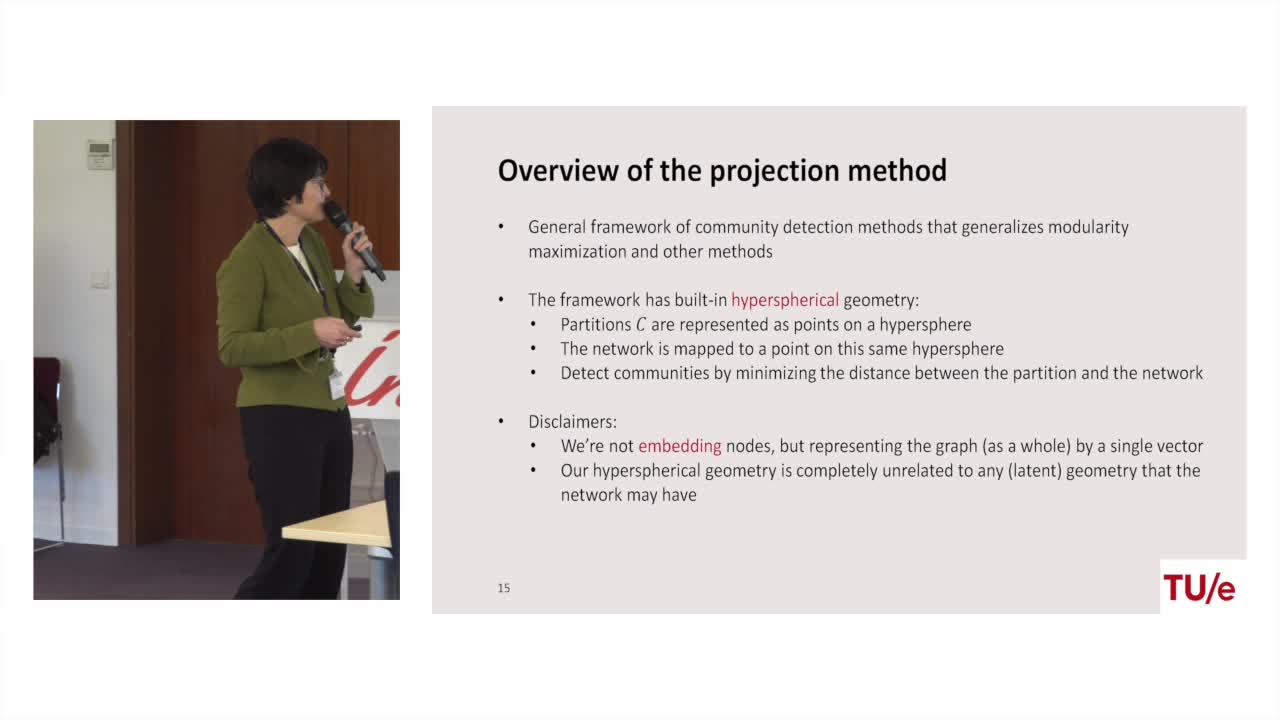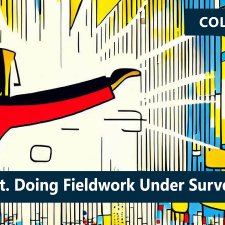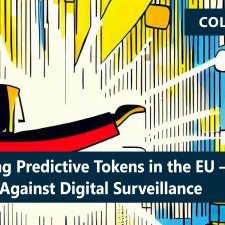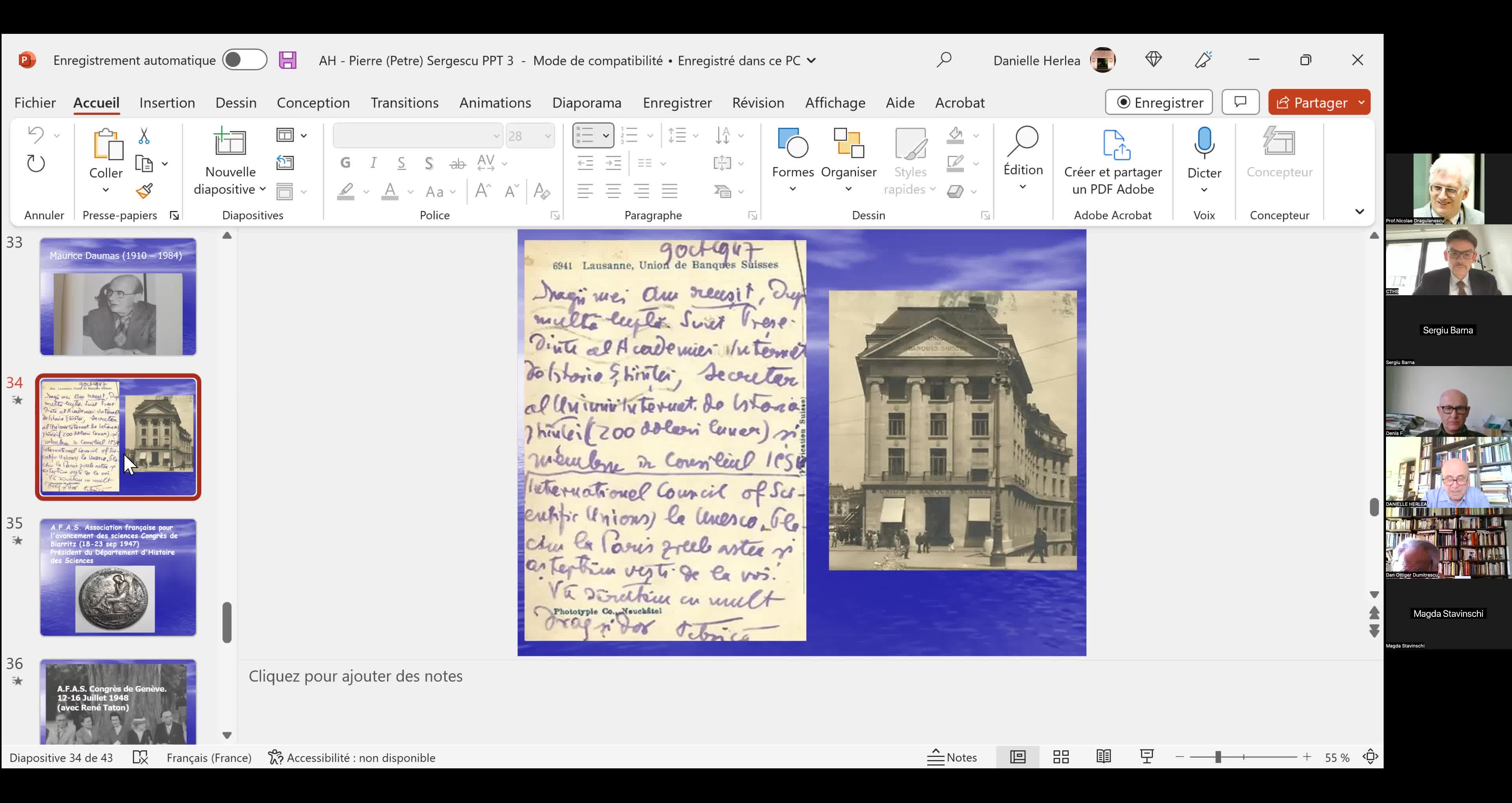Notice
Bubeck 5/9 - Some geometric aspects of randomized online decision making
- document 1 document 2 document 3
- niveau 1 niveau 2 niveau 3
Descriptif
This course is concerned with some of the canonical non-stochastic models of online decision making. These models have their origin in works from the 1950's and 1960's, and went through a resurgence in the mid-2000's due to many applications in the internet economy. This course focuses on a set of challenging conjectures around these models from the 1980's and 1990's. We present a unified approach based on a combination of convex optimization techniques together with powerful probabilistic tools, which will allow us to derive state of the art results in online learning, bandit optimization, as well as some classical online computing problems (k-server and metrical task systems). Special emphasis are given to proper introduction of the mathematical/algorithmic tools: gradient descent, mirror descent (i.e., Riemannian gradient descent), probabilistic embedding of metric spaces, some basic results in convex geometry, etc.
Thème
Documentation
Liens
Avec les mêmes intervenants et intervenantes
-
Bubeck 8/9 - Some geometric aspects of randomized online decision making
BubeckSébastienThis course is concerned with some of the canonical non-stochastic models of online decision making. These models have their origin in works from the 1950's and 1960's, and went through a resurgence
-
Bubeck 9/9 - Some geometric aspects of randomized online decision making
BubeckSébastienThis course is concerned with some of the canonical non-stochastic models of online decision making. These models have their origin in works from the 1950's and 1960's, and went through a resurgence
-
Bubeck 6/9 - Some geometric aspects of randomized online decision making
BubeckSébastienThis course is concerned with some of the canonical non-stochastic models of online decision making. These models have their origin in works from the 1950's and 1960's, and went through a resurgence
-
Bubeck 7/9 - Some geometric aspects of randomized online decision making
BubeckSébastienThis course is concerned with some of the canonical non-stochastic models of online decision making. These models have their origin in works from the 1950's and 1960's, and went through a resurgence
-
Bubeck 3/9 - Some geometric aspects of randomized online decision making
BubeckSébastienThis course is concerned with some of the canonical non-stochastic models of online decision making. These models have their origin in works from the 1950's and 1960's, and went through a resurgence
-
Bubeck 4/9 - Some geometric aspects of randomized online decision making
BubeckSébastienThis course is concerned with some of the canonical non-stochastic models of online decision making. These models have their origin in works from the 1950's and 1960's, and went through a resurgence
-
Bubeck 2/9 - Some geometric aspects of randomized online decision making
BubeckSébastienThis course is concerned with some of the canonical non-stochastic models of online decision making. These models have their origin in works from the 1950's and 1960's, and went through a resurgence
-
Bubeck 1/9 - Some geometric aspects of randomized online decision making
BubeckSébastienThis course is concerned with some of the canonical non-stochastic models of online decision making. These models have their origin in works from the 1950's and 1960's, and went through a resurgence
Sur le même thème
-
La voix, une donnée identifiante à protéger
VincentEmmanuelEmmanuel Vincent, chercheur au Centre Inria de l'Université de Lorraine et au Loria (Laboratoire lorrain de recherche en informatique et ses applications), présente sa recherche sur l'anonymisation de
-
Podcast 1/4 d'heure avec : Emmanuel Vincent, chercheur au Centre Inria de l'Université de Lorraine …
VincentEmmanuelRencontre avec Emmanuel Vincent - chercheur au Centre Inria de l'Université de Lorraine et Loria (Laboratoire lorrain de recherche en informatique et ses applications).
-
Tuan Ta Pesao : écritures de sable et de ficelle à l'Ile d'Ambrym
VandendriesscheEricCe film se déroule au Nord de l’île d’Ambrym, dans l’archipel de Vanuatu, en Mélanésie...
-
Machines algorithmiques, mythes et réalités
MazenodVincentVincent Mazenod, informaticien, partage le fruit de ses réflexions sur l'évolution des outils numériques, en lien avec les problématiques de souveraineté, de sécurité et de vie privée...
-
Désassemblons le numérique - #Episode11 : Les algorithmes façonnent-ils notre société ?
SchwartzArnaudLima PillaLaércioEstériePierreSalletFrédéricFerbosAudeRoumanosRayyaChraibi KadoudIkramUn an après le tout premier hackathon sur les méthodologies d'enquêtes journalistiques sur les algorithmes, ce nouvel épisode part à la rencontre de différents points de vue sur les algorithmes.
-
Les machines à enseigner. Du livre à l'IA...
BruillardÉricQue peut-on, que doit-on déléguer à des machines ? C'est l'une des questions explorées par Éric Bruillard qui, du livre aux IA génératives, expose l'évolution des machines à enseigner...
-
Désassemblons le numérique - #Episode9 : Bientôt des supercalculateurs dans nos piscines ?
BeaumontOlivierBouzelRémiDes supercalculateurs feraient-ils bientôt leur apparition dans les piscines municipales pour les chauffer ? Réponses d'Olivier Beaumont, responsable de l'équipe-projet Topal, et Rémi Bouzel,
-
Projection methods for community detection in complex networks
LitvakNellyCommunity detection is one of most prominent tasks in the analysis of complex networks such as social networks, biological networks, and the world wide web. A community is loosely defined as a group
-
Lara Croft. doing fieldwork under surveillance
Dall'AgnolaJasminLara Croft. Doing Fieldwork Under Surveillance Intervention de Jasmin Dall'Agnola (The George Washington University), dans le cadre du Colloque coorganisé par Anders Albrechtslund, professeur en
-
Containing predictive tokens in the EU
CzarnockiJanContaining Predictive Tokens in the EU – Mapping the Laws Against Digital Surveillance, intervention de Jan Czarnocki (KU Leuven), dans le cadre du Colloque coorganisé par Anders Albrechtslund,
-
"Le mathématicien Petre (Pierre) Sergescu, historien des sciences, personnalité du XXe siècle"
HerléaAlexandreAlexandre HERLEA est membre de la section « Sciences, histoire des sciences et des techniques et archéologie industrielle » du CTHS. Professeur émérite des universités, membre effectif de l'Académie
-
Ivan Murit - Processus de création d'images
MuritIvanJe vais présenter une manière décalée d'aborder les outils d'impression. Pour cela nous ne partirons pas de l'envie d'imprimer une image préexistante, mais d'avant cela : comment se crée une forme












